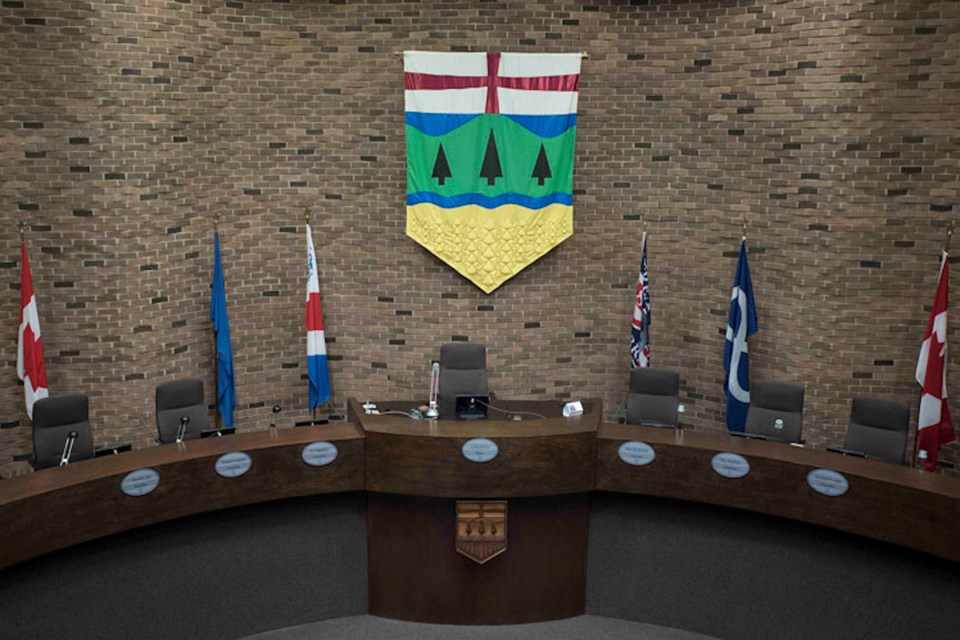After finalizing the 2024 municipal budget last month, St. Albert city council approved the associated tax rate bylaw on May 7.
The bylaw, which finalizes an aggregate property tax increase of 5.3 per cent (4.9 per cent for residential property and 6.3 per cent for non-residential property), needed to be in place in order for the city to mail property assessments and tax notices to property owners later this month.
A report to council about the bylaw explains that the 2024 mill rate — the amount of tax levied per set amount of property value — for the city's tax levy is 8.68, which leads to property owners paying $868.57 for every $100,000 of property value. The 2024 mill rate for non-residential property is 13.13, which leads to a levy of $1,312.81 for every $100,000 of property value.
The 2024 residential mill rate is 0.45 higher than the 2023 rate, meaning that property owners will pay $46.05 more for every $100,000 of property value this year. For non-residential property, owners are paying $59.28 more for every $100,000 of property value in 2024 compared to 2023.
However, those mill rates don't include the provincially-set education requisition aspect of property taxes. Although the education property tax is collected by municipalities, the money is transferred to the provincial government.
Despite the provincial government freezing the rate at which residential and non-residential property owners are taxed for the education requisition, the freeze doesn't mean that owners aren't paying more this year because the requisition is calculated based on the overall assessment value of a municipality, meaning that as property values increase, so will the amount levied against properties.
This means that on top of the $868.57 for every $100,000 of property value that residential property owners will pay this year, another $248.75 for every $100,000 of property value will be levied specifically for the education requisition. For non-residential property owners, the 2024 education requisition is $365.60 for every $100,000 of property value.
For residential properties, the 2024 education requisition is 5.7 per cent higher than 2023, while the increase for non-residential properties is just one per cent.
On May 7 council unanimously approved three resolutions ahead the upcoming Alberta Municipalities convention in September, which, if approved at the convention, will become an advocacy item that Alberta Municipalities pushes to the province. One of the three resolutions St. Albert city council approved is to advocate for education property tax reform.
For Coun. Wes Brodhead, council's goal in pushing for property tax reform is to have more “room” when it comes to how the city calculates and uses property tax dollars, something he said Premier Danielle Smith talked to council about prior to the 2023 election.
“The fact of the matter is that when we met with the Premier here a while ago she talked about giving room to municipalities out of the education component,” said Brodhead. “So the nature of the motion to Alberta Municipalities is simply calling her on her promise, if you will, to do that.”
“What I've heard out of [the legislature] is that they're a little less amenable to supporting cities these days... but I don't think it's a moot gesture; I think what we need to do is stand and make our case and make the statement that we need this room.”
Coun. Sheena Hughes also referenced council's meeting with Smith last year when asked about the resolution, adding that she'd like to see council have more control over the annual property tax rate since the education requisition represents 22 per cent of the overall levy residents are facing.
“The overall tax levy includes both municipal taxes and the education levy, and the education levy has gone up, which is something we have no control over, and the revenue from that we would like to see actually help pay for some of the infrastructure required for the city to grow,” Hughes said.
“This [resolution] is a follow up to remind the government that we would like to see some of this education levy be used to help municipalities in their needs when they need to expand their infrastructure.”
Mayor Cathy Heron also pointed out during the May 7 council meeting that reforming the education property tax system so that municipalities retain more funding was an initiative included in the mandate letter Smith issued to the Minister of Municipal Affairs Ric McIver in August.
“I don't care how it rolls out in the end,” Heron said. “That's [McIver's] job to figure out what this looks like, but [the resolution is to] just get him to do something, essentially.”
Another mill rate that is in addition to the above rates levied against property owners is the Homeland Housing requisition.
Homeland Housing is a public non-profit organization that manages seniors housing facilities in 11 municipalities in Alberta, including St. Albert, Morinville, and Sturgeon County.
The new residential mill rate for this requisition is 0.079, meaning $7.99 will be levied for every $100,000 of assessed property value. The new non-residential mill rate for the Homeland Housing requisition is 0.12, or $12.24 for every $100,000 of property value.
In all, the city will be collecting about $173.65 million in property taxes this year, 79 per cent of which will come from residential properties while non-residential properties will contribute 21 per cent of the total.
Property owners should receive their 2024 property assessment and taxation notice in the mail on May 29.




